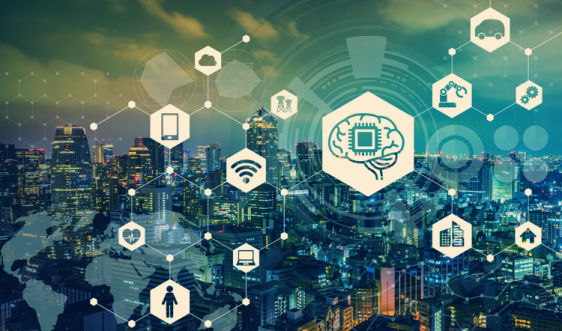Artificial intelligence is the ability of a machine or technology to learn and think itself. These machines are programmed to learn, think, and act as close to humans as possible with the data they have collected. But, how do you evaluate artificial intelligence's impact on the business industry?
Artificial intelligence is the ability of a machine or technology to learn and think itself. These machines are programmed to learn, think, and act as close to humans as possible with the data they have collected. But, how do you evaluate artificial intelligence's impact on the business industry?
From robots working in the manufacturing factories, AI assistants for operating systems on multiple devices such as Android, IOS, or Windows, etc. to AI chatbots on websites and apps, artificial intelligence is changing the industries for the better.
To understand the impact of AI on businesses, we have a list of the benefits it brings to the industry. Let’s have a look at each one of them:
Shopping Experience
Providing customers with a personalized shopping experience can really increase the engagement and sales of a business. Introducing artificial intelligence in such scenarios can help companies identify the patterns of customers’ shopping patterns and how they purchase a product and provide personalized offers.
Automated interactions
It has become common to see auto-replies from bots on most websites or apps these days. These are built with the help of artificial intelligence, which can analyze the previous communication data from customers to respond accurately. This can also help in situations when a business does not have enough resources to respond to all customer queries at once.
Responding to the customer in such scenarios will help them understand that their query has been heard and will be taken care of, instead of getting no response, which can make a business lose a customer.
We can see such examples with websites or mobile apps where chatbots exist, and they are programmed to answer some of the most common queries customers might have.
Data Mining
Using artificial intelligence during the processing of big data can really help businesses discover detailed insights that they were previously unaware of. This is really helpful as it can give them an edge in the marketplace.
Operational Automation
In a lot of businesses, AI can be used to operate other technologies. One typical example we see today is robots in the manufacturing industry. With AI, these robots can be programmed to manufacture products 24x7, which would only be possible for a business if they had three different shifts of human workers.
This saves a lot of time and overall manufacturing costs. Another example is the use of AI in retail, which can help the business keep track of its inventories.
Predictions
Another great benefit of using artificial intelligence is being able to predict outcomes with the help of data analysis. For example, in retail, it is possible to see patterns in customer data, which will allow a business to understand if the product on sale will succeed or fail. It can even predict the volume the product will likely sell.
This is beneficial for a business since they will know when to restock the product and what volume they should restock with. Another example of AI prediction can be seen in banking, where it is somewhat possible to predict how stock prices and currency will fluctuate in the near future.
Recruitment Process
Another great benefit of artificial intelligence in business is the ability to integrate AI to automate the recruitment process of a company. Modern HR software can now automatically sift through multiple applications, reject or accept applications, and much more. This can help save time and money.
It is entirely safe to say that using AI for your business process can be highly effective, considering all the above benefits of artificial intelligence in business.





